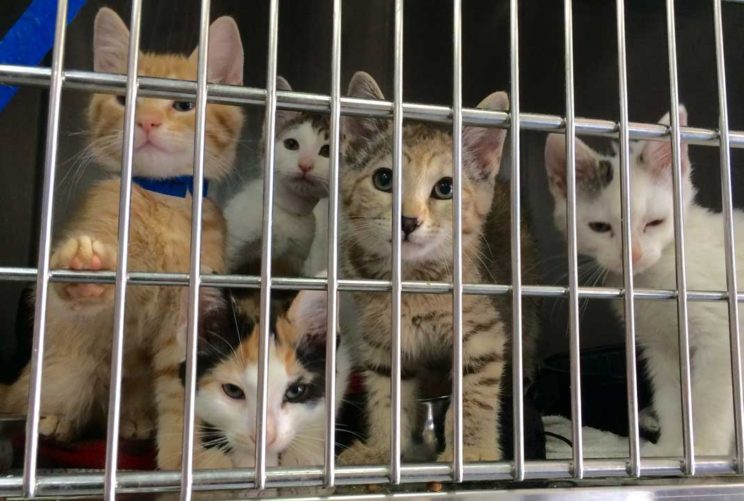Help needed to get Florida shelter reform legislation passed.

It is the most powerful piece of shelter reform legislation ever introduced. Short of a ban on killing, its passage would be a game changer not only in Florida, but across the nation. It is more sweeping than California’s Hayden Law which increased rescue transfers by over 350% (over 45,000 animals a year) and arguably saved over 1,000,000 animals since its passage. It is more comprehensive than Delaware’s Shelter Standards Law which reduced killing statewide by over 60% (over 90% for cats), allowing the state to finish with a 91% live release rate for dogs, 92% for cats, and 96% for other animals.
Employing provisions that are responsible for live release rates of over 98% in municipal shelters like Austin which currently employ them, HB 515, the Florida Companion Animal Protection Act would prohibit “shelters” from killing animals, even after the mandatory holding period, unless and until:
- They notify rescue groups and give them the opportunity to save the animal;
- They notify the prior “owner” (so long as there was no indication of neglect or cruelty) and give them the opportunity to take back the animal;
- They notify the finder and give them the opportunity to take back the animal;
- They notify community shelters to see if they have room;
- There are no empty cages, kennels, or other living environments in the shelter, including space to set up temporary living environments;
- The animal cannot share a cage or kennel with another animal;
- The shelter has made a plea to foster homes and a foster home is not available;
- The cat is not a healthy cat who can be sterilized and then released; and,
- They post the animal’s photo and information to the internet to facilitate redemptions and adoptions.
In addition, HB 515 establishes a holding period for both stray animals and those surrendered by their families, it gives the person surrendering the animal the ability to change their mind and reclaim the animal, it bifurcates the holding period to incentivize adoptions and rescue transfers, it allows “shelters” to transfer animals to rescue groups right away to free up cage and kennel space thus reducing costs while increasing lifesaving, it mandates prompt and necessary care and environmental enrichment, and for those who are irremediably suffering, rigorously defined, it puts in place a mechanism to end their lives in as kind and compassionate a manner as possible and one that meets the dictionary definition for “euthanasia.”
In short, it brings “shelters,” many of which continue to operate under a 19th century “catch and kill” mentality (or who have raised live release rates not by doing their jobs but abandoning animals), into the 21st century.
And, of course, it is not likely to get support from groups whose mission it is ostensibly to defend animals. PETA will fight to kill it. HSUS will remain cowardly neutral so as not to offend its animal control allies. The ASPCA will be nowhere to be found. The state animal control association which defends an industry based on convenience killing will predictably oppose it. And local pounds, who simply do not want to do the work of saving lives when it is so much easier just to kill the animals, will lobby for its demise.
As such, it cannot pass without the public’s help, without a public outcry that the status quo is untenable and the animals deserve so much more. If you live in Florida, now is the time to make your voice heard. Contact your state legislators and ask them to cosponsor HB 515, the Florida Companion Animal Protection Act.
Not in Florida and want to bring a similar law to your state? Check out the No Kill Advocacy Center-‹’s — my organization’s — model law and guide to getting legislation introduced.
————-
Have a comment? Join the discussion by clicking here.